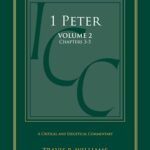The Date of Easter
 Throughout church history professing believers have argued amongst themselves about all kinds of things. In retrospect, some of these debates have been key steps in hammering out the details of important theological issues. Other debates have been less than edifying. Many of the disagreements related to the date of Easter have fallen into this latter category.
Throughout church history professing believers have argued amongst themselves about all kinds of things. In retrospect, some of these debates have been key steps in hammering out the details of important theological issues. Other debates have been less than edifying. Many of the disagreements related to the date of Easter have fallen into this latter category.
People are often surprised when they discover that a series of significant and sometimes very bitter controversies have taken place over how to calculate the date of Easter. And as of 2012, the disagreement is still not fully resolved. Last year was one of those unusual years when the major branches of professing Christendom celebrated Easter on the same Sunday. Such is not normally the case, and it is not the case this year.
The controversy about when to celebrate Easter is usually described as taking place in four distinct phases. Space does not permit a discussion of each of these, but here’s a glimpse of the earliest phase. Writing in the fourth century, Eusebius described the first stage of this controversy when he wrote,
At that time [the late second cent.], no small controversy erupted because all of the Asian dioceses thought that the Savior’s paschal festival should be observed, according to ancient tradition, on the fourteenth day of the moon, on which the Jews had been commanded to sacrifice the lamb. On that day it was necessary to finish the fast, no matter what day of the week it might be. In churches throughout the rest of the world, however, it was not customary to celebrate in this way, since, according to apostolic tradition, they maintained the view that still prevails: the fast ends only on the day of our Savior’s resurrection [Sunday]. Synods and conferences of bishops were held on this issue… (Eusebius, Ecclesiastical History 5.23).
Eusebius also went on to tell of how Victor (bishop of Rome in the late second cent.) tried to excommunicate a large number of eastern churches for their practice of celebrating Christ’s resurrection on the 14th of Nisan. Needless to say, these were not some of the church’s brightest days.
Much more encouraging is the advice found in another early text. The Apostolic Constitutions is a document that was probably compiled in the late fourth century. Regardless of its exact origin, this document provides insight into how some early Christians celebrated the resurrection of Christ:
Break your fast when it is daybreak of the first day of the week, which is the Lord’s day. From the evening until the cock-crows, keep awake; assemble together in the church; watch and pray; entreat God. When you sit up all night, read the Law, the Prophets, and the Psalms—until cock-crowing. Baptize your catechumens and read the Gospel with fear and trembling. And speak to the people such things as will assist their salvation…. And from that point on, leave off your fasting and rejoice! Keep a festival, for Jesus Christ, the pledge of our resurrection, is risen from the dead! (Apostolic Constitutions 5.19).
 Regardless of how one calculates the date of Easter, this last statement expresses the heart of why Christians have celebrated Easter for many centuries—Jesus Christ, the pledge of our resurrection, is risen from the dead! In celebrating Easter we celebrate the fact that Christ has conquered death and that just as God raised Christ from the dead, he will someday raise Christ’s followers as well (1 Cor 6:14).
Regardless of how one calculates the date of Easter, this last statement expresses the heart of why Christians have celebrated Easter for many centuries—Jesus Christ, the pledge of our resurrection, is risen from the dead! In celebrating Easter we celebrate the fact that Christ has conquered death and that just as God raised Christ from the dead, he will someday raise Christ’s followers as well (1 Cor 6:14).



This article on easter is very informative. I am a christian and I find it very important to get informed about most of the christian practices. Easter celebration been one of such practice.After carefully reading this article, I am truely convinced that regardless of how one calculates the date of Easter, the heart of why Christians have celebrated Easter for many centuries is the fact that Jesus Christ, the pledge of our resurrection, is risen from the dead! In celebrating Easter we celebrate the fact that Christ has conquered death and that just as God raised Christ from the dead, he will someday raise Christ’s followers as well (1 Cor 6:14).thanks for sharing this.